| Playing with the Past: Into the Future (Human–Computer Interaction Series), 2nd ed. |
| from Springer-Nature: “Dear Prof. Erik Champion, Your book “Playing with the Past: Into the Future (Human–Computer Interaction Series), 2nd ed.” is currently planned to be published by 30.10.2022.” |
Category Archives: Book
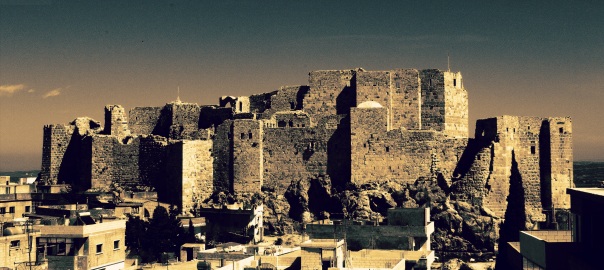
Assassin’s Creed in the Classroom: History’s Playground or a Stab in the Dark?
I am very close to submitting to a publisher the edited book (with Dr Juan Hiriart, University of Salford, UK) “Assassin’s Creed in the Classroom: History’s Playground or a Stab in the Dark?” with 18 writers from history, archaeology, architecture, art history, classics, game design, and education. Thanks to Maxime Durand and Ubisoft for helping getting the party started.
Swords Sandals and Selfies
An abstract from a draft chapter. I have written the chapter but hope to revise it further. It is for a book entitled Screen Tourism and Affective Landscapes, out, I hope, early 2023.
The prospect and potential of videogame-induced tourism has only recently been discussed in academic publications. I will examine three possible reasons why, I will provide evidence to the contrary, and suggest new developments that may accelerate the impact of videogames on tourism (and the related experiencing of affective landscapes). My main case study will be Assassin’s Creed: Odyssey. This 2019 game draws the player into the exploration of idyllic and war-torn historic and mythic landscapes of Athens and Sparta, via questing and simulated violence. It also features a non-violent “Discovery” mode, photographical functions, and a Story Creator mode allowing quests (and in-game photos) to be designed and shared with other players. Beyond violent gameplay, Assassin’s Creed: Odyssey allows the exploration of idyllic historic landscapes and heritage sites. Given the company employs both high-quality designers and professional historians (and archaeologists), we can employ such sandbox games as both a pre-visitation visualisation tool and as a hybrid fictional and yet also factual learning environment.
Virtual Heritage: How Could It Be Ethical?
Abstract
Draft of latest book chapter (before revisions) by the editors. Now onto the next book chapter!
Ranging from modified adaption of commercial games (game mods) to multi-million-dollar 3D visualizations and web-based projects, virtual heritage projects have showcased cutting-edge technology and provided insight into understanding past cultures. Virtual heritage has the potential to safeguard unique cultural treasures from the ravages of war and neglect, with interaction techniques to communicate knowledge across time and linguistic divides.
Despite these advantages, at its core, Virtual Heritage (virtual reality and related immersive and interactive digital technology applied to cultural heritage) implies something not real, but an illusion simulated or artificially projected. It typically relies on highly specialized capture, rending and hosting technology created by highly trained individuals, running on high-powered equipment manufactured at great environmental cost. And the original material it simulates can be sacred, stolen, or contested. There are consequences and ethical implications for this illusory but expensive medium of cultural heritage (and, typically, “cultural heritage” means other peoples’ cultures), whether complicitly generated or not. While the research field of virtual heritage is several decades old, its specific ethical issues have not been extensively addressed (Hepworth and Church, 2018, de Broglie, 2018, Frischer, 2019), and specific challenges are not often covered by, say, digital archaeological ethics discussion (Dennis, 2021, Dennis, 2020).
To provide an overview of these ethical issues, four issues will be discussed in this chapter. Who determines the content, cultural ownership and overall decision-making; how both the depiction of personal or sacred assets and traces of people no longer with us, obsessions with photorealism rather than the complex topic of authenticity, and the dangerous allure of gamification; what needs to be preserved and related environmental issues; where and when the audience should be involved, motivated, and their feedback fed back into current and future projects.
Keywords: Cultural heritage, virtual heritage, virtual reality, serious games.
new book project in screen tourism and landscapes
With two fine co-editors our edited book proposal on the above topic has been through the review process and judged fit for publication with helpful and positive comments.
It still has to pass the publisher editorial meeting in January but our editor there does not see any problems. Given we still need formal approval, I hope to announce more details in a month or so. We do still need a chapter or more on Asia but otherwise I am very happy with our authors and draft chapters. Congratulations everyone!

30% discount on latest book
Regards my latest book “Rethinking Virtual Places”-Indiana University Press have kindly offered a 30% discount just by using this URL (but only for customers “outside US, Canada and Latin America”): https://combined-academic.myshopify.com/discount/CSV21RVP?redirect=%2Fproducts%2Frethinking-virtual-places-1
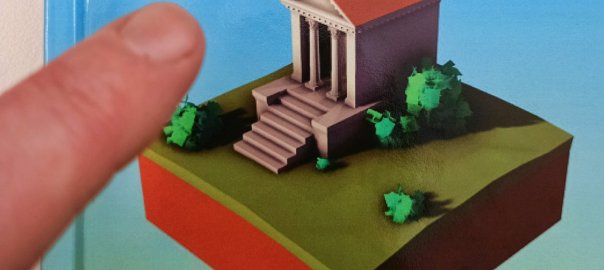
New Book Out In The Wild
I know I have talked about it enough but I finally have a hardcover copy in my hands…

Rethinking Virtual Places
Published by: Indiana University Press
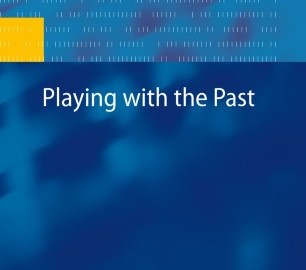
2nd edition, Playing With The Past, 2022
Today I agreed to complete a 2nd edition of “Playing With The Past” – Springer persuaded me there was a market for an updated book due to over 10,000 downloads. But I know there is *a lot* to update over the last 11 years. Sigh. Time for some surgically precise, concise, editing.

Virtual Heritage: How Could It Be Ethical?
Latest book chapter in the works:
Virtual Heritage: How Could It Be Ethical? Invited chapter for The Routledge Handbook of Heritage Ethics, Andreas Pantazatos, Tracy Ireland, John Schofield and Rouran Zhang (eds.), Routledge, 2023.
Ranging from modified adaption of commercial games (game mods) to multi-million dollar 3D visualizations and web-based projects, virtual heritage projects have showcased cutting-edge technology and provided insight into understanding past cultures. While the research field of virtual heritage (virtual reality and related immersive and interactive digital technology applied to cultural heritage) is several decades old, its specific ethical issues have not been extensively addressed.
Six issues will be discussed in this chapter: cultural ownership; the depiction of humans no longer with us; obsessions with photorealism rather than the complex topic of authenticity; environmental costs; accidental social alienation; and the gamification of serious, traumatic, or personal content.
update: ‘Rethinking Virtual Places’ Proof Approved
I mentioned in the below post that I was on the home stretch with this book (in the Indiana University Press Spatial Humanities series), final proof was approved by me this week. I also noticed it was over 107,000 words. Thanks to Dean and Professor Marc Aurel Schnabel for the comments on the back.
“An essential contribution to a very current topic.” —Marc Aurel Schnabel, Victoria University of Wellington
If anyone wishes to review or consider ‘Rethinking Virtual Places‘ for courses please contact Indiana University Press or email me.

Playing With The Past 2nd ed.
Are second editions of specialist academic books worth the rewrite? Springer asked me to consider a second edition of Playing With the Past (https://lnkd.in/gXYH5Uy), as 10,000 chapters have been downloaded..but it requires some work to update it.
Apparently, 20% can be rewritten but as most of the main chapters were written in 2003-4, updated before publication in 2011, to update to 2021 will be quite some work. There weren’t so many books and papers in the area when I started! On the other hand it is an opportunity to review what I was trying to determine in 2001-2004 during my PhD candidature. And I would love to replace the original cover. Decisions, decisions!
“Rethinking Virtual Places” can be ordered in September
Out in November, purchasable in September. Contact IUP for reviewer copies “Rethinking Virtual Places” (in the IUP Spatial Humanities series) https://iupress.org/9780253058355/rethinking-virtual-places
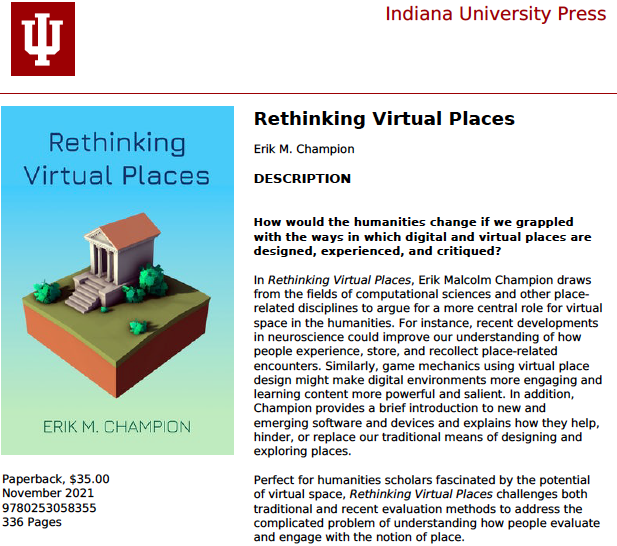
update: “Virtual Heritage: A Guide”
Dear Rosa and Andrea (and Michael)
Thanks to the colleagues and co-authors who helped inspired me to edit a concise book for students that will be open access (i.e. free PDF downloads).
Virtual Heritage: A Guide will be available on Thursday 22 July 2021 at https://www.ubiquitypress.com
I’d appreciate any feedback from staff or students for future editions.

Virtual Heritage: A Guide
I have been informed, that if there are no major holdups the above will be available as a free online book from Ubiquity Press in July 2021. Cover image courtesy of Michael Carter.
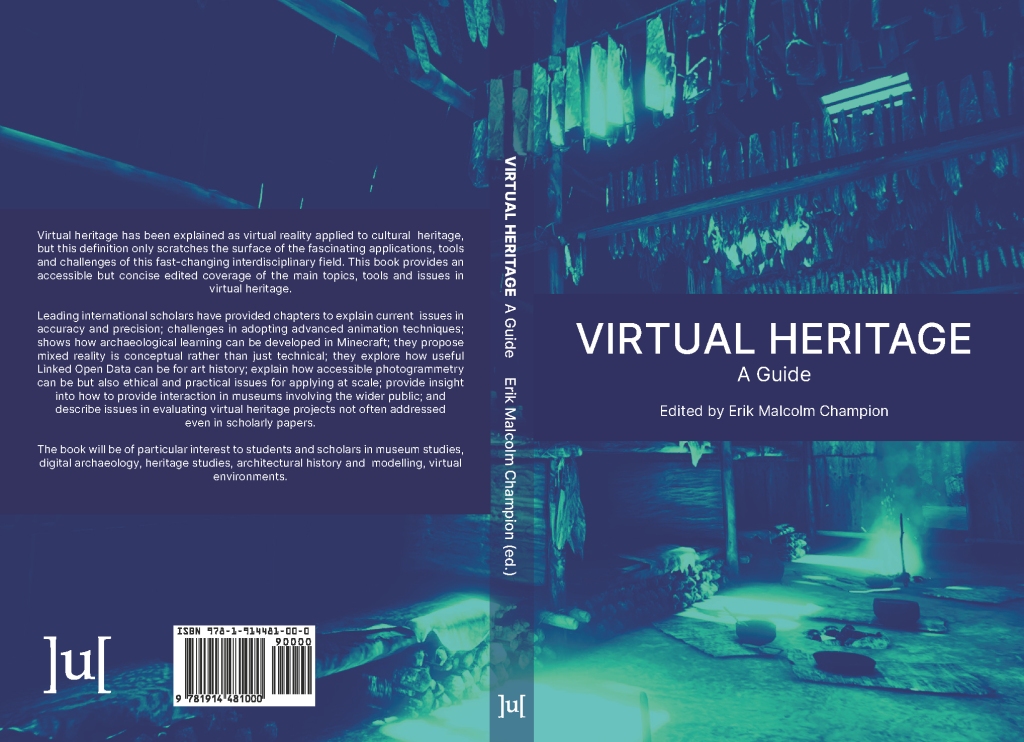
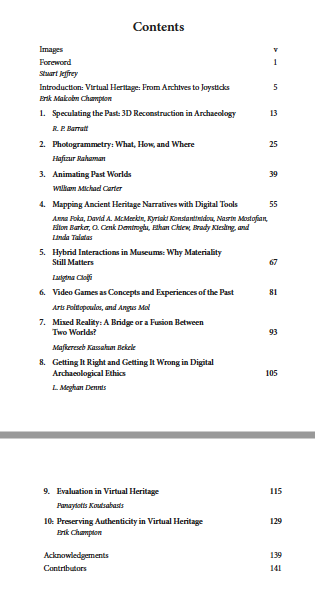

2021: my year in print
What have I been doing this year? Playing a lot of piano, badly. But also (and I hope to add 2 journal articles and a book project and a serious game design project to this mix):
Invitations:
- Invited CI, ARC LIEF Grant LE210100021. $440,000. “Australian Cultural Data Engine for Research, Industry and Government.” Joining as a Chief Investigator, 26 April 2021. Led by Prof Rachel Fensham, Melbourne.
- Invited CI, Australian Research Data Commons (ARDC) platforms grant: Time-Layered Cultural Map of Australia 2.0 $100,000. 25/11/2020. https://ardc.edu.au/news/new-data-projects-will-help-transform-australian-research/
- Invited reviewer, Springer-Nature.
- Invited onto the European Science Foundation College of Expert Reviewers.
- Invited to speak to New South Wales Local Studies Librarians group, “Virtual heritage: tools, projects, hopes and challenges,” Zoom, 23 March 2021.
- Invited guest lecturer and tutor, Data Science Visualisation, Science & Engineering, Curtin University.
- Invited to Professor of Design interview panel, SUSTech, China, by Dean Thomas Kvan.
- Invited advisor for Swedish-Finnish grant application: PLATYPUS Engaging diverse publics through participatory play in heritage institutions, led by Uppsala University.
- Opening speaker, invited, webinar on smart tourism. ASEAN Australia Smart Cities Webinar Series Part 7: Promoting Smart Tourism Recovery via Virtual Reality. ZOOM webinar 2 March 2021. Organiser: Asian Development Bank.
- Invited to speak at University of Aberdeen Academic Forum and New South Wales Local Studies Librarians group-Zoom (date?).
- Interviewed for Canvas8 magazine. Quine, O. (2021). Are Britons ready for virtual holidays? canvas8. Retrieved from https://www.canvas8.com/content/2021/03/23/britons-virtual-holidays.html
- Interviewed by UNSW students on the subject of virtual tourism.
- Invited to co-chair the EuroMed2020 conference www.euromed2020.eu, Springer-Nature LNCS. Co-chairs include Professor Marinos Ioannides, ERA and UNESCO of Chair Digital Cultural Heritage, Mrs Eleanor Fink, USA, former Getty Digital Techs Director and inventor of Object-ID standard, Professor Lorenzo Cantoni from Switzerland, UNESCO Chair in ICT.
2021 PUBLICATIONS
Conference Proceedings (as Book):
- Ioannides, M., Fink, E., Cantoni, L., & Champion, E. (Eds.) (2021). Digital Heritage. Progress in Cultural Heritage: Documentation, Preservation, and Protection. 8th International Conference, EuroMed 2020, Virtual Event, November 2–5, 2020, Revised Selected Papers. DOI:10.1007/978-3-030-73043-7. ISBN 978-3-030-73043-7.
Published articles
- Rahaman, H., Johnston, M., & Champion, E. (2021). Audio-augmented arboreality: wildflowers and language. Digital Creativity, 1-16. https://doi.org/10.1080/14626268.2020.186853
- Champion, E. (2020). Culturally Significant Presence in Single-player Computer Games. Journal on Computing and Cultural Heritage, 13(4). DOI: 10.1145/3414831. https://dl.acm.org/doi/10.1145/3414831
- NB AWARD: in 2021 this paper won Virtual Archaeology Review Journal’s 2020 Paper of the Year. “Survey of 3D digital heritage repositories and platforms”, by Erik Champion and Hafizur Rahaman. DOI: https://doi.org/10.4995/var.2020.13226
Published Fully Referred Conference Papers
- Champion, E., Kerr, R., McMeekin, D., & Rahaman, H. (2020, 2-5 November 2020). Time-Layered Gamic Interaction with a Virtual Museum Template. Paper presented at the EuroMed 2020 Conference, Online/Cyprus. Revised Selected Papers. Springer-Nature. Published in 2021.
2021 Conference and Journal Reviewer
- Invited committee member, Australian Museums & Galleries Association (AMaGA) National Conference (Perth).
- Invited onto Program Board of Culture & Computing 2021 Conference, Springer ( HCI International).
- Invited reviewer, Springer-Nature Scientific Reports.
- Invited reviewer, the Journal of Open Archaeology (De Gruyter).
- Invited reviewer, CAA2021.
2021-22 PUBLICATIONS IN PRESS
Books in press
- Champion, E. (2021: November). Rethinking Virtual Places. Indiana University Press, Spatial Humanities series.
- Champion, E. (Ed). (2021: May). Virtual Heritage: A Guide. Ubiquity Press, London.
- Champion, E. (Ed). (2022: pending). Screen Tourism and Affective Landscapes.
- Champion, E., & Hiriart, J. (Eds.). (2022: in press). Assassin’s Creed in the Classroom, Museum, and Gallery: De Gruyter: Video games and the Humanities series, 18 chapters, 25 international authors.
Book Chapters in press
- Champion, E., Nurmikko-Fuller, T., & Grant, K. (2022: invited). Chapter 12 Alchemy and Archives, Swords, Spells, and Castles: Medieval-modding Skyrim. In R. Houghton (Ed.), Games for Teaching, Impact, and Research UK: De Gruyter.
- Champion, E., & Hiriart, J. (2022). Workshopping Board Games for Space Place and Culture. In M. Lasansky & C. Randl (Eds.), Playing Place: Board Games, Architecture, Space, and Heritage. Cambridge, Massachusetts, USA: MIT Press.
- Champion, E. (2022). Reflective Experiences with Immersive Heritage: A Theoretical Design-Based Framework. In A. Benardou & A. M. Droumpouki (Eds.), Difficult Pasts and Immersive Experiences. London, UK: Routledge.
- Champion, E. (2022). Not Quite Virtual: Techné between Text and World. In B. Mauer & A. Salter (Eds.), Reimagining the Humanities. Anderson, South Carolina, USA: Parlor Press.
- Champion, E. (2021: pending). Biodiversity and Cultural Diversity: Virtual opportunities. In E. Wandl-Vogt (Ed.),Biodiversity in connection with Linguistic and Cultural Diversity. Vienna, Austria.
- Champion, E. (2021: pending). Workshopping Game Prototypes for History and Heritage. In Digital Humanities book, Politecnico di Torino, Italy. Aracne Publishing Company. Chapter.
Conference activities to take place
- Wright, H., et al., 2021. S12: Digital Infrastructures and New (and Evolving) Technologies in Archaeology (Roundtable). CAA2021: Digital Crossroads. Cyprus/Online. https://2021.caaconference.org/sessions/ 14-18 June.
Alchemy and Archives, Swords, Spells, and Castles: Medieval-modding Skyrim
This is our proposed draft chapter (7500-9000 words) for a book on medieval modding within a game (Elder Scrolls V: Skyrim).
Ear Zow Digital, Australian National University, University of Western Australia
Terhi Nurmikko-Fuller, Australian National University
Katrina Grant, Australian National University
Elder Scrolls V: Skyrim, through its rich modding possibilities, has great potential as a teaching and learning tool. The world of Skyrim, although “pseudo-medieval”,[1] can, through the use of mods, aim for a level of historical accuracy comparable to many scholarly digital 3D reconstruction projects. These types of projects are now widely accepted as a vehicle for a new way of thinking about old topics, and as a valuable prompt for engaging students. The advantage of using Skyrim is that the historically informed mods can be combined with sophisticated game mechanics to immerse and inspire students as procedural, contestable, and reconfigurable simulations. Through playful exploration, students can investigate the game world and engage with both the historically-informed and fantastical elements. But they can also become designers, and investigate historical developments through the creation of new assets, modified game mechanics, and social storytelling. Designing simulations is a further learning experience and Skyrim’s Creation Kit is thus also a pedagogical tool.
In this chapter we will explore ways in which Skyrim can be used and modified to explain, through play, three related aspects of medieval society: culture, architecture, and landscape. We will then discuss the modding capability of Skyrim, and conclude with some suggestions for how future Elder Scrolls games and game mods could be leveraged as a teaching and learning tool.
[1] von Lünen, Alexander, Katherine J Lewis, Benjamin Litherland, and Pat Cullum. 2019. Historia Ludens: The Playing Historian. Vol. 30. New York, USA: Routledge.
Book Chapters on the way (provisionally)
- Champion, E. (2021: pending). Biodiversity and Cultural Diversity: Virtual opportunities. In E. Wandl-Vogt (Ed.), Biodiversity in connection with Linguistic and Cultural Diversity. Vienna, Austria. Written.
- Champion, E. (2021: under review). Not Quite Virtual: Techné between Text and World” In Texts & Technology: Inventing the Future of the Humanities, edited by Anastasia Salter and Barry Mauer, University of Central Florida, Orlando Florida USA. Written.
- Champion, E. (2021: under review). Workshopping Game Prototypes for History and Heritage. In Digital Humanities book, Politecnico di Torino, Italy. Aracne Publishing Company. Written.
- Champion, E., & Hiriart, J. (2021: pending). Workshopping Board Games for Space Place and Culture. In C. Randl & M. Lasansky (Eds.), Playing Place: Board Games, Architecture, Space, and Heritage. Written. Publisher being negotiated.
- Champion, E. (2021). Reflective Experiences with Immersive Heritage: A Theoretical Design-Based Framework. In A. Benardou & A. M. Droumpouki (Eds.), Difficult Pasts and Immersive Experiences. London, UK: Routledge. Abstract accepted.
- Champion, E., Nurmikko-Fuller, T., & Grant, K. (2021: pending, invited). Blue Sky Skyrim VR: Immersive Techniques to Engage with Medieval History. In R. Houghton (Ed.), Games for Teaching, Impact, and Research UK: De Gruyter. Abstract accepted, full chapter due March 2021.
- Champion, E. (2022: pending). Swords, Sandals and Selfies: A Tour You’d Kill For. In C. Lee & E. Champion (Eds.), Screen Tourism and Affective Landscapes Publisher to be confirmed.
Assassin’s Creed in the Classroom Book Project
I have started an 18 chapter 25 author edited book project with De Gruyter (Video Games and the Humanities series) and Dr Juan Hiriart as co-editor. I hope to publish it in 2022. Confirmed authors are from Canada, USA, the Netherlands, Germany, Belgium, Finland, Australia, New Zealand, and the UK. The aim is to explain how the Ubisoft Assassin’s Creed Series can and has and could be used in the classroom, museum, or gallery (or as escape space). De Gruyter and Ubisoft historians have been very encouraging. I’d love contributions from the Caribbean or Middle East but very happy with what we have going forward.
There is some possibility of related online learning materials being made available.
Assassin’s Creed in the Classroom, Museum and Gallery
Alternative title: Assassin’s Creed: History’s Playground or a Stab in the Dark?
NB This is not the final chapter order.
- Ubisoft’s Archaeology And History-Making: From The Inside
- Using The Assassin’s Creed Discovery Tours In The Classroom: A Tutorial
- Creation Of Teacher Curriculum Guides For The Assassin’s Creed Discovery Tour Games To Improve Teachers’ TPCK And TAM
- Gaming The Classroom: Assassin’s Creed Odyssey As A Learning Tool For First Year Undergraduates
- Understanding Problems Of Historical Writing Through Historical Videogame Design
- Preparing High School Students For An Academic Trip To Greek Archaeological Sites By Using The Ubisoft Discovery Tour On Ancient Greece
- Assassin’s Creed Odyssey And Its Use In The Context Of The Archaeological Museum In Muenster (Germany)
- Viking Life: Using Assassin’s Creed Valhalla Settlements To Teach Social History And Everyday Life In School Classrooms
- Living Through The Animus: Conceptualizing Playful Time Travel In The Classroom
- Christian Vikings Storming Templar Castles: Anachronism As A Teaching Tool
- The Discovery Tour And Historical Characters In Ancient Greece
- An Unholy Alliance? Ubisoft And The Future Of Archaeological (Re)Animation
- Classical Creations In A Modern Medium
- Discovering The Past As A Virtual Foreign Country: Assassin’s Creed As Historical Tourism
- Assassin’s Creed @ The Carlos: Merging Videogames And Education At The Michael C. Carlos Museum
- Learning The Past By Walking Through Biomes
- Historical Video Games And Teachers Practices In French-Speaking Secondary Schools In The Montreal Metropolitan Area
- Religion Is History: Teaching Religion To Postsecular Audiences
Virtual Heritage: A Guide
I am not sure this will be the final title but just finished (I hope) my editing for the following open access 10 chapter book: Virtual Heritage: A Guide, Ubiquity Press 2021.
Table of contents:
| Foreword | Stuart Jeffrey | |
| Virtual Heritage: from Archives to Joysticks | Ear Zow Digital | |
| 1 | Speculating the Past: 3D Reconstruction in Archaeology | R. P. Barratt |
| 2 | Photogrammetry: What, How and Where | Hafizur Rahaman |
| 3 | Animating the Past | Michael Carter |
| 4 | Mapping Ancient Heritage With Digital Tools | Anna Foka, David McMeekin, Kyriaki Konstantinidou, Nasrin Mostofian, Elton Barker, Cenk Demiroglu, Ethan Chiew, Brady Kiesling |
| 5 | Hybrid Interactions in Museums: Why Materiality Still Matters | Luigina Ciolfi |
| 6 | Video Games as concepts and experiences of the past | Aris Politopoulos, Angus Mol |
| 7 | Mixed Reality: A Bridge or a Fusion between Two Worlds? | Mafkereseb Bekele |
| 8 | Getting it Right and Getting it Wrong in Digital Archaeological Ethics | L. Meghan Dennis |
| 9 | Evaluation in Virtual Heritage | Panayiotis Koutsabasis |
| 10 | Preserving Authenticity in Virtual Heritage | Ear Zow Digital |
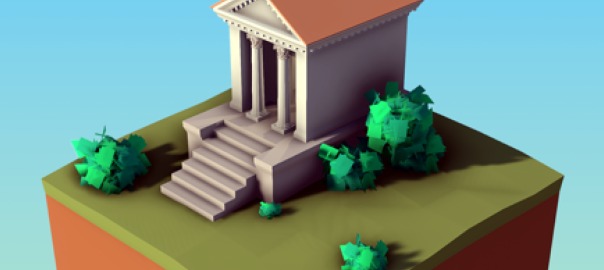
New book cover

Was one of two book covers possible and I think due to some email confusion they didn’t choose my preferred cover but I really appreciate permission by Dr Anthony Masinton to use his rendered image. The publisher of Rethinking Virtual Places will be Indiana University Press, via their Spatial Humanities Series.
